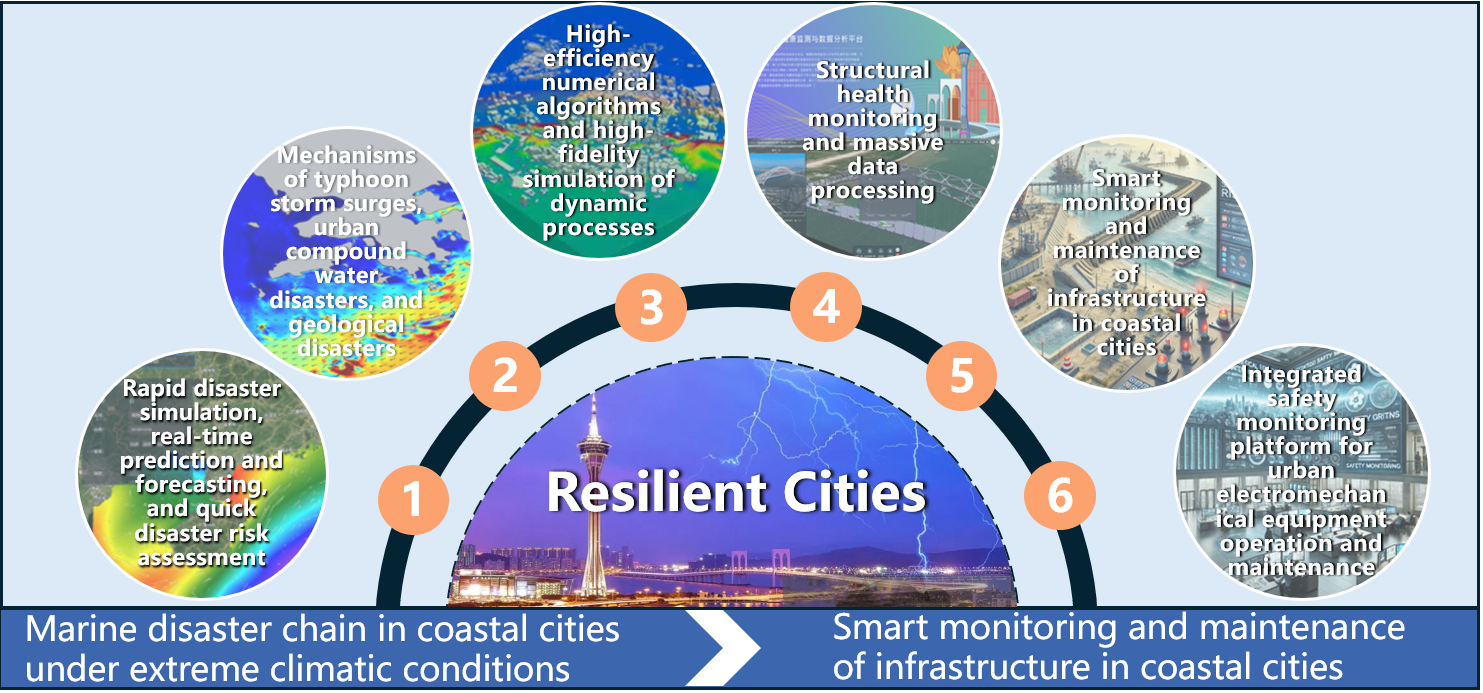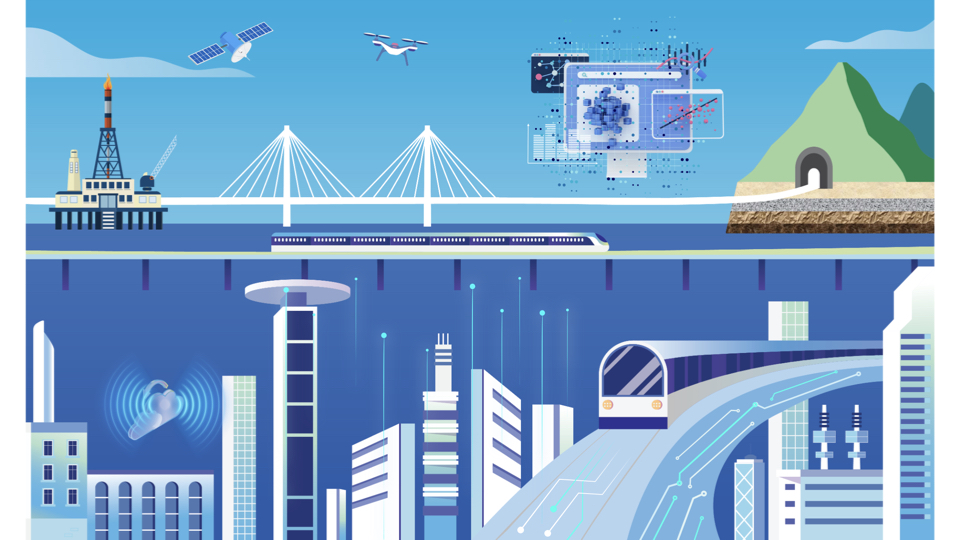Urban Safety and Disaster Prevention
Introduction
Urban safety and disaster prevention are crucial fields that require immediate attention in the construction of resilient cities and the management of smart cities. Considering the global climate change scenario, it is expected that extreme weather conditions such as high-intensity typhoons will become increasingly frequent. This poses a severe threat to the safety of coastal cities, especially when marine disaster prevention capabilities remain limited. Additionally, the infrastructure such as electrical equipment, structural engineering, and underground spaces working in coastal environments is subject to increasingly complex loads and operational conditions. This inevitably leads to accelerated deterioration of infrastructure performance and increased frequency of failures in electromechanical equipment. Consequently, their ability to withstand natural disasters and function properly diminishes rapidly, and in extreme cases, catastrophic accidents may occur. Therefore, the Urban Safety and Disaster Prevention Research Group focuses on research in simulation and risk assessment of marine disaster chains in coastal cities, as well as IoT-based infrastructure safety monitoring, intelligent operation and maintenance. By conducting research on multi-scale, multi-hazard real-time monitoring, simulation, forecasting, early warning, and risk assessment, ranging from macro to micro, from sea to land, from regional to individual levels, the research group aims to provide theoretical foundations and technical support to enhance the resilience and emergency management of coastal cities.


Faculty Members
Research Topics
Innovative Computational Methods and Marginal Sea Dynamics
This research group combines the advanced numerical method, geophysical fluid dynamics and observation to unravel the complexities of marine dynamics and various aspects of computational physics. Studies focus on understanding the circulation dynamics in marginal seas, encompassing multiple scales from cross-slope exchanges to broader shelf interactions, and exploring the oceanic response to climatic forcings. Utilizing numerical simulations, they delve deep into the coastal marine environment, aiming to provide insights into its dynamic processes. Their expertise extends to the design and analysis of numerical methods for solving partial differential equations, crucial in computational fluid dynamics, electronic structure calculations, and computational micromagnetics. The group’s commitment to advancing the field also involves the efficient implementation of these algorithms and the development of numerical software, bridging the gap between theoretical research and practical applications. Through their interdisciplinary approach, they contribute to the broader understanding of both marine environments and computational physics phenomena.
Coastal & Urban Hazard Chains and Advanced Computational Modelling
This multidisciplinary research group focuses on advanced computational modeling of natural hazards in urban and coastal zones. Their work combines numerical simulations of storm-induced landslides, debris flows, and floods with remote sensing and machine learning to enhance predictive accuracy. They also investigate hydrodynamic and water quality dynamics in estuaries and coastal areas, integrating hydraulic models with urban drainage systems to address storm surges. Leveraging computational fluid dynamics, particularly meshless methods like Smoothed Particle Hydrodynamics (SPH), they analyze sediment transport and granular flows in natural hazards. Additionally, the team employs numerical simulations and intelligent monitoring to study secondary disasters triggered by typhoon-driven rainfall, such as flash floods. To address flood resilience challenges in Macau, they developed a quantitative risk assessment framework for complex flood scenarios, aiming to guide sustainable urban planning. Their research provides critical insights for enhancing coastal cities’ disaster preparedness and advancing mitigation strategies.
Smart Monitoring and Maintenance of Infrastructure in Coastal Cities
This research team addresses critical challenges in IoT-based safety monitoring and intelligent maintenance of coastal urban infrastructure. Their work focuses on developing efficient algorithms to process structural health data affected by operational loads and environmental variability, establishing theoretical frameworks to understand performance degradation and damage mechanisms. They advance smart sensing technologies and physics-informed machine learning to resolve spatiotemporal uncertainties and manage multi-source, multidimensional data in complex geological settings, enabling multi-scale integration of data and physical models. The team also investigates real-time monitoring and maintenance of electromechanical equipment, analyzing service degradation and failure mechanisms through digital-twin models and feature mining. By integrating smart sensing, health diagnostics, safety alerts, and intelligent maintenance systems, their research aims to enhance the resilience and operational efficiency of coastal infrastructure and electromechanical systems.



















